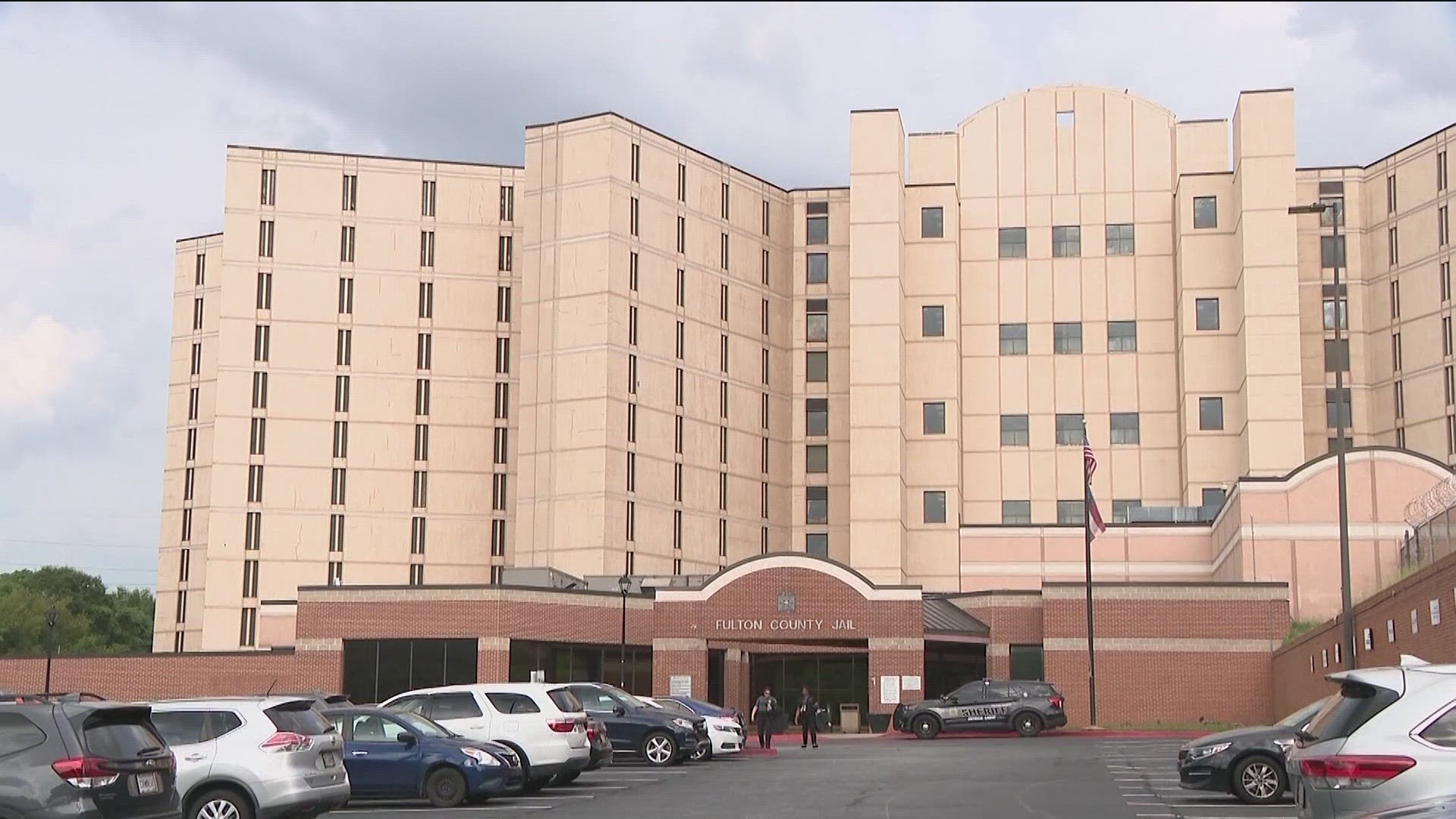ATLANTA — UPDATE:
Fulton County Superior Court Judge Scott McAfee signed a limited protective order Thursday to prevent the leaking of sensitive evidence in the 2020 Georgia election case.
Original:
The Atlanta judge overseeing the election trial of former President Donald Trump and others is expected to issue a protective order to prevent sensitive evidence from surfacing after interviews with the four defendants who pleaded guilty in the case were shared with media outlets.
Fulton County Superior Court Judge Scott McAfee said during Wednesday's emergency hearing that he plans to issue the order Thursday morning.
The order will likely prevent defendants and their legal teams from sharing those interviews -- called proffers -- as well as business records and other sensitive documents with outside parties.
The ruling comes on the heels of a request from Fulton County District Attorney Fani Willis to prevent such leaks after The Washington Post and other media outlets published portions of interviews her office conducted with Scott Hall, Sidney Powell, Kenneth Chesebro, and Jenna Ellis as part of her 2020 election case.
RELATED: Fulton DA asks for court order to stop leaks after Trump case witness interviews surface
Attorneys for the district attorney's office, Trump, and most other defendants tentatively agreed with a limited protective order proposed by defendant David Shafer, the former Georgia GOP chair who played a key role in organizing Trump presidential electors.
Parties who directly opposed the order include Harrison Floyd's legal team and attorneys representing several media outlets, including 11Alive.
Attorney Thomas Clyde, who represented the media outlets, argued that no protective order was needed.
At the end of Wednesday's hearing, McAfee said his final decision would mirror the order proposed by Shafer. The goal is to prevent tainting the jury pool and keep discovery free-flowing.
"Until we decide what is going to be relevant and admissible, this case should be tried not in the court of public opinion as much as possible," McAfee said. "We've already seen what may happen if a protective order isn't put in place. ...I think a protective order mitigates, if not protects, against all those entirely."
Jonathan Miller, an attorney for defendant Misty Hampton, said during Wednesday's hearing that he shared the interviews with an unnamed media outlet. Miller said he shared the information because the public had a right to know because the pleas were public.
No order prevented Miller from sharing the files. Miller said that a protective order isn't needed, but he would follow any guidelines issued by McAfee.
"To hide those proffers ... that show all the underlying things that went into those pleas, misleads the public about what's going on," Miller said.
In a court filing Tuesday, Fulton prosecutors appeared to initially point the finger at Floyd for sharing videos with media outlets.
Prosecutors pointed to emails sent to its office, the court and defense attorneys about media coverage of the interviews. In the conversation, Floyd attorney Todd Harding told the group that it was their team that shared the recordings. Floyd's team then said that the initial email was a typo, according to court documents. Floyd denied involvement in social media posts.
Multiple media outlets reported on the contents of the interviews on Monday evening and Tuesday morning. The Washington Post obtained a series of audio recordings from the interviews.
The four interviews touched on multiple 2020 election topics during their conversations with the district attorney's office, ranging from the "alternate" slate of presidential electors to the accessing of voting machines in Coffee County, Georgia.
Hall, an Atlanta-area bail bondsman, said in his interview that attorney Bob Cheeley, another defendant in the Trump case, was a part of the "brain trust" that organized the Jan. 7, 2021 copying of Coffee County election data. Hall told prosecutors that he was just a "water boy," the Post reports.
11Alive previously reported on Hall's role in Coffee County, examining texts and emails that tied him to the event.
Trump and 18 others were indicted in August on charges they criminally interfered in the 2020 election. To date, four defendants have accepted plea deals. A trial date for the remaining 15 defendants has not been set.

